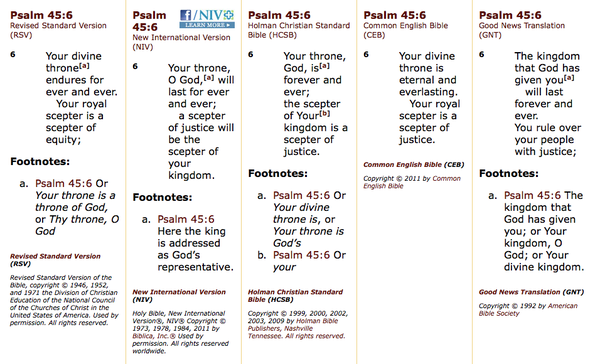There is different ways to translate Psalm 45:6 and to understand Hebrews 1:8 in connection with this Old Testament passage as a result. This can be seen in the picture below, a screenshot from five different translations and their footnotes taken from Bible Gateway.

Hebrews 1:8 is not about the Messiah (or Christ), Yeshua, being God at all. This is about the Davidic king sitting on God's throne. Remember, this an excerpt from Psalm 45:6. Yes, the KJV renders it as "Thy throne, O God, is for ever and ever: the sceptre of thy kingdom is a right sceptre" (Psalm 45:6). But as written in the Cambridge Bible for Schools and Colleges:
"In view of these difficulties it is necessary to consider whether the words are correctly translated. Various other renderings have been proposed, taking Elohim as the subject or predicate of the clause instead of as a vocative. (a) God is thy throne: i.e. thy kingdom is founded upon God. In support of this are quoted such phrases as “Jehovah is my refuge and my fortress” (Psalm 91:2), or, “The eternal God is thy dwelling-place” (Deuteronomy 33:27). But the expression, to say the least, would be a strange one. (b) Thy throne is God, i.e. divine. But though Hebrew uses substantives as predicates in a way which our idiom does not allow, this particular instance seems scarcely admissible. (c) Thy throne [is the throne of] God (R.V. marg.). It is a disputed point whether this rendering is grammatically legitimate; but good authorities decide in the affirmative. It gives an excellent sense, and if the text is to be retained is the most satisfactory explanation of it. The theocratic king occupied the earthly throne of Jehovah as His representative (1 Chronicles 28:5; 1 Chronicles 29:23), ruling by His power (1 Kings 3:28), and in His Name; and the justice of this king’s government (6 b, 7) stamps him as a worthy representative of Jehovah."
Jesus Christ is not God and never was, but he is the Messiah, appointed by God in the kingly office of ruler on God's behalf.
Praise be to God, His Father and Our Father.
In Jesus Christ's name.





